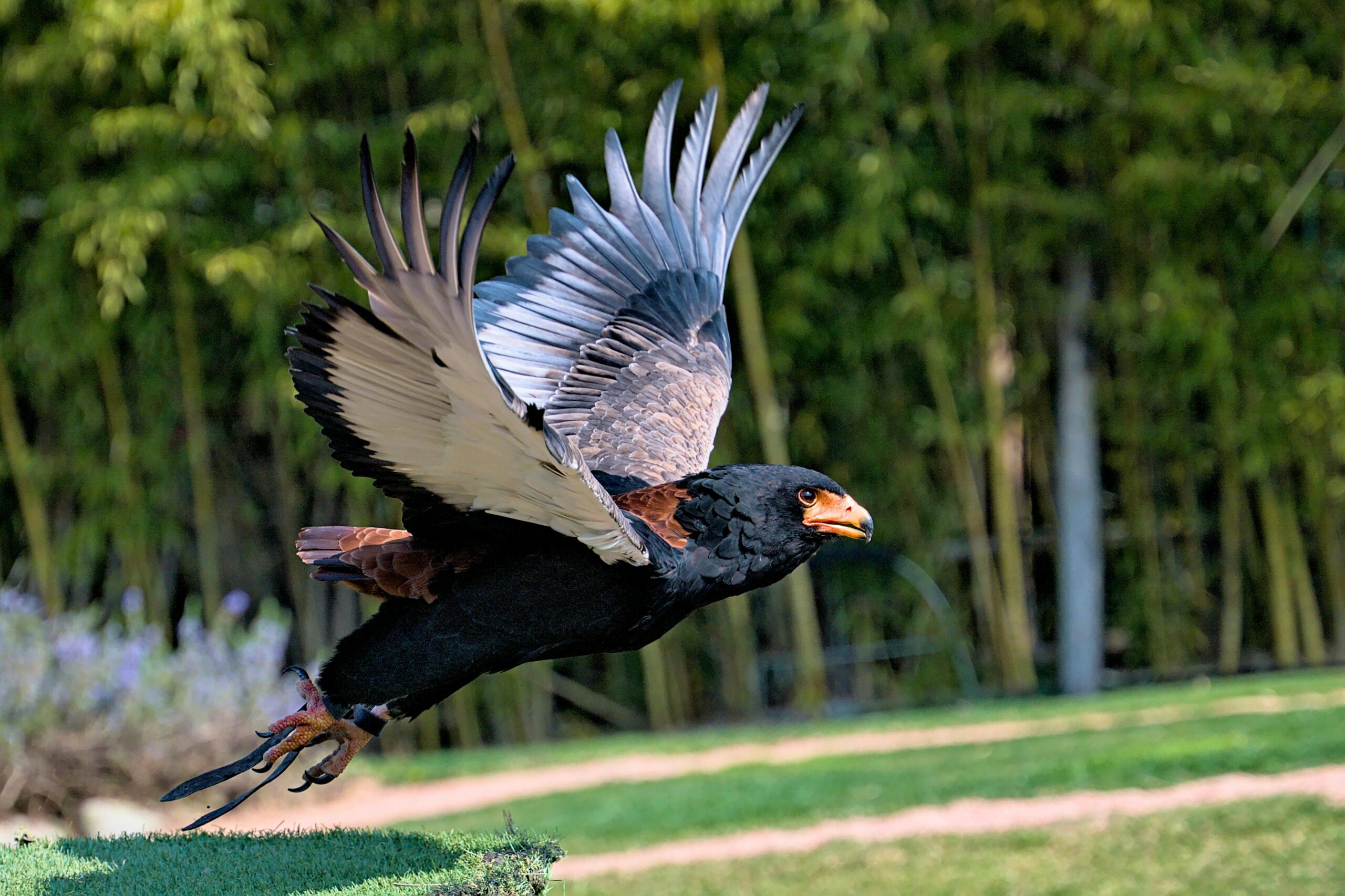Bateleur eagles are known for their impressive lifespan, with an average of 25 years in captivity. These majestic birds are slow-maturing and slow-breeding, making them a fascinating species to study and care for. In this blog post, we’ll explore the details of how long a bateleur eagle can live in captivity, as well as the unique characteristics and care requirements that contribute to their longevity.
The Average Lifespan of Bateleur Eagles in Captivity
Bateleur eagles are long-lived species, with an average lifespan of around 25 years in captivity. This is a significant advantage compared to their counterparts in the wild, where the average lifespan is typically around 15-20 years. The extended lifespan of bateleur eagles in captivity is largely due to the controlled environment, consistent access to food, and veterinary care they receive.
Factors Influencing Bateleur Eagle Lifespan in Captivity
Several factors contribute to the longevity of bateleur eagles in captivity. Let’s explore these factors in more detail:
Diet and Nutrition
Bateleur eagles are carnivorous birds, and their diet in captivity must be carefully curated to meet their nutritional needs. A varied diet that includes rodents, birds, and reptiles is essential for maintaining their health and supporting their long lifespan. Proper supplementation with vitamins and minerals can also play a crucial role in their overall well-being.
Enclosure Size and Design
Bateleur eagles require a spacious enclosure that allows for ample flight and exercise. A well-designed enclosure should provide a quiet, stable environment that minimizes disturbances and stress. Adequate perching, nesting, and hiding spots are also important for the birds’ comfort and natural behaviors.
Veterinary Care and Monitoring
Regular veterinary check-ups and proactive healthcare are crucial for bateleur eagles in captivity. Monitoring for any health issues, providing prompt treatment, and addressing any concerns can significantly contribute to their longevity. Preventive measures, such as routine vaccinations and parasite control, are also essential.
Breeding and Reproduction
Bateleur eagles are slow-breeding, with a single egg laid in a nest that sits in a large tree. The incubation period lasts 52-59 days, and the hatchling will leave the nest after 110 days, continuing to receive food from its parents for another 100 days. Successful breeding and rearing of offspring in captivity can help maintain a healthy population and contribute to the overall lifespan of the species.
Unique Characteristics of Bateleur Eagles
Bateleur eagles are known for their impressive physical features and behaviors, which contribute to their captivating presence in captive environments.
Aerial Displays
Bateleur eagles are renowned for their spectacular nuptial aerial displays, which involve steep dives by the male at the female, who will roll on her back, presenting her claws, and then roll on over to right herself as he hurtles past. These displays are a sight to behold and showcase the birds’ agility and grace in the air.
Pair Bonding and Nest Fidelity
Bateleur eagles pair for life and often stay in the same nest for several years. Unpaired adults may sometimes be seen near a nest site, indicating their strong attachment to their breeding grounds and mates.
Foraging and Flight Patterns
Bateleur eagles are known for their impressive flying abilities, covering up to 300 miles in up to an eight-hour-long daily search for food. Their rapid, direct flight is a testament to their adaptations for efficient hunting and exploration of their habitat.
Caring for Bateleur Eagles in Captivity
Caring for bateleur eagles in captivity requires a deep understanding of their unique needs and a commitment to providing the best possible environment for their long-term well-being. Factors such as diet, enclosure design, veterinary care, and breeding management must be carefully considered to ensure the birds thrive and reach their full lifespan potential.
Conclusion
Bateleur eagles are truly remarkable birds, with an average lifespan of 25 years in captivity. Their longevity is a testament to their resilience and the dedication of those who care for them. By understanding the factors that contribute to their long lives and providing them with the best possible care, we can ensure that these magnificent birds continue to captivate and inspire us for generations to come.
References:
- Kruger National Park, “Bateleur Eagle – Terathopius ecaudatus – Kruger National Park”, https://www.krugerpark.co.za/africa_bateleur_eagle.html
- The Eagle Directory, “Bateleur – Terathopius ecaudatus”, http://eagleencyclopedia.org/species/bateleur.html
- Wikipedia, “Bateleur”, https://en.wikipedia.org/wiki/Bateleur



